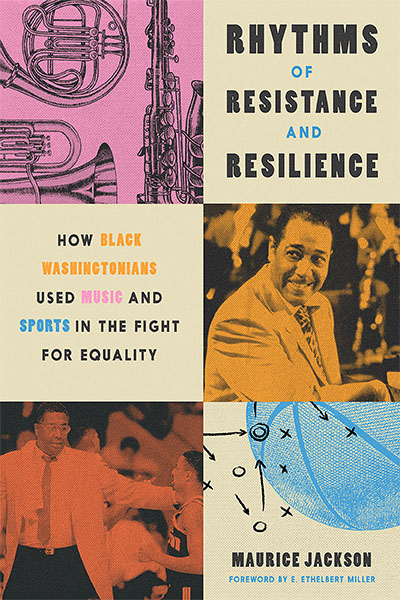A Georgetown University history professor published a new book Feb. 3 narrating the impact of musicians and athletes on combating racial discrimination in Washington, D.C.
Maurice Jackson, who is also affiliated with the Black studies and music departments, wrote the book, titled “Rhythms of Resistance and Resilience,” to highlight how music, including jazz, and sports can be tools for unity and empowerment.

Jackson said the importance of music and sports lies in their ability to inspire action and foster healing.
“It is what we call a balm,” Jackson told The Hoya. “There’s an old spiritual song: There is a balm in Gilead to heal the sin-sick souls — it’s an old Negro spiritual. It does not solve the problem — we need people to move forward and solve problems — but what sports and athletes can do is get people inspiration that there can be a better day.”
Jackson said music and sports are powerful because they unite communities across racial differences, remembering major sports victories in D.C.
“The streets just became a glow,” Jackson said. “We lived in Adams Morgan and everybody came out — Black, white, men, women — it was just wonderful. There was no class, no bifurcation of race or anything else.”
Benjamin J. Harbert, the chair of the music department, said the book displays the relationship between music and politics through the depth of Black expression.
“When you’re looking at activism and protest in the streets and through rallies and nonprofit advocacy groups, you see one mode of cultural expression, and when you see it through music, you see it through a different one,” Harbert told The Hoya. “Things like joy become part of the story, things like community, things like having a relief from the heavy so you can come together with music. It adds to the diversity of political expression.”
Jackson, who worked in D.C. politics for decades as a community organizer and researcher, said he chose to work with the Georgetown University Press, a university-run academic publisher, to curate local stories to reach D.C. residents.
“The reason I wanted the Georgetown University Press is they do such a good job on a local audience in Washington, D.C.,” Jackson said. “And while the story I tell about music and sports is a local story, it really has national implications because it could be in any city.”
Harbert said focusing on D.C. is a new addition to the scholarly field because most jazz narratives tend to focus elsewhere, particularly New York City.
“When we define jazz in New York, we lose all the stories of how particular jazz and musical culture in D.C. is,” Harbert told The Hoya. “There are different stories, different groups, different ways that people come together. And so the particularity of D.C. is a really important thing to add to the scholarship of Black music.”
Luke Frederick (GRD ’24), who wrote his doctoral dissertation under Jackson, said Jackson’s empathy and close connections with others has profound implications on his research.
“He knows everybody,” Frederick told The Hoya. “He goes out of his way, treats everybody the same — whether they have letters behind their name or not. You can’t really make it five steps without somebody stopping and talking to him, and the same in D.C. in general. He’s been around in the community so much.”
Jackson said he hopes his book will demonstrate the importance of cultural connections and focus on the personal spirit in the fight for equality.
“This book, I think, will serve to show how important it is to enhance the mind and the spirit,” Jackson said. “These things go one-in-one with the struggle for equality. Music and sports are not going to save anybody, but they can give you the inspiration to go out and fight harder.”








